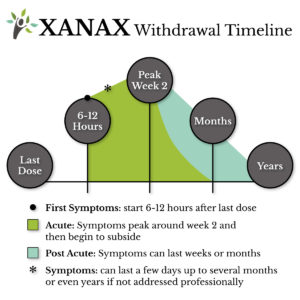Benzodiazepine medications are some of the most commonly prescribed drugs in the United States. These drugs can treat anxiety disorders, seizures and sleep disorders. However, they are also habit forming and one of the most dangerous types of addictive drugs.
Detoxing from benzodiazepines requires a carefully planned cessation program and medical assistance, especially once physical dependence has manifested.
Uses for Benzodiazepine Medications
Most benzodiazepine medications act as a depressant on the central nervous system, suppressing some of the automatic responses that lead to the symptoms of anxiety disorders or seizures. Most doctors recommend short-term use of these drugs and will gradually lower a patient’s dose until he or she does not need them anymore. This is a very delicate process because people who abuse benzodiazepine medications put themselves at risk of addiction and the subsequent withdrawal, which can be fatal in some cases.
Many Types of Benzodiazepines
Benzodiazepines exist in hundreds of forms, some of which are slow acting and long lasting, while others are fast acting but wear off quickly. Different benzodiazepine medications will lead to similar patterns of abuse and withdrawal symptoms, but the rate of addiction varies based on the type of drug.
Here’s an overview of the most common benzodiazepine drugs:
Xanax
One of the most commonly prescribed benzodiazepine medications in the U.S. is alprazolam, also known as Xanax. This fast-acting medication acts on the central nervous system to calm the symptoms of anxiety and produce sedative effects. Xanax addiction is one of the most common forms of prescription benzodiazepine abuse in the country.
Librium
Chlordiazepoxide, also known as Librium, is a fast-acting sedative that requires careful doctor supervision. Users can build a tolerance, which leads to physical dependency and addiction.
Klonopin
Clonazepam, also known as Klonopin, can treat anxiety disorders as well as seizures and the symptoms of acute alcohol withdrawal, all due to its sedative properties.
Tranxene
Tranxene is the brand name for clorazepate dipotassium, a sedative benzodiazepine medication intended for short-term treatment of anxiety.
Valium
Valium is the brand name for diazepam and can treat a variety of anxiety disorder symptoms and aid sleep. This drug depresses the central nervous system and can be fatal if overdose occurs.
Prosom
Estazolam, commonly called Prosom, is a type of benzodiazepine medication usually prescribed as a short-term sleep aid.
Dalmane
Flurazepam, sold under the brand name Dalmane, can treat the symptoms of insomnia when used appropriately. Dalmane, however, cause memory problems and respiratory complications if abused.
Ativan
Lorazepam is the generic name for Ativan, a very commonly prescribed sleep aid intended for short-term use.
Versed
Midozolam, sold under the brand name Versed, is a fast-acting and powerful sedative that can help with anxiety disorders. However, doctors rarely prescribe this to patients who are not under strict supervision.
Serax
Serax is the brand name for oxazepam, and doctors often prescribe this slow-acting medication for short-term use to treat insomnia and anxiety.
Restoril
Restoril is the brand name for temazepam, often prescribed for short-term use as a sleep aid.
Halcion
Halcion, the brand name for triazolam, is most commonly prescribed as a sleep aid intended for short-term use.
Doral
Doral, the brand name for quazepam, is a powerful sedative only recommended for occasional, supervised use.
Risks of Prolonged Benzo Use
Virtually every type of benzodiazepine medication works best when used over a short period with a cessation plan. When people abuse benzodiazepine medications, they often run out sooner than intended and experience withdrawal symptoms. Depending on the degree of addiction, this can be significantly damaging, or even fatal in some cases.
Proper Cessation of Benzodiazepine Medications
A doctor who prescribes a benzodiazepine medication to a patient will typically only recommend short-term use or supervised dosing at the doctor’s office. These medications are very powerful and many are fast acting, making them problematic for patients who take them before working, going to school, driving or engaging in risky physical activities.
When a patient is nearing the end of a round of benzodiazepine medication, his or her doctor will typically recommend tapering off the medication gradually. In some cases, the doctor may recommend switching to a slower-acting, but longer-lasting, benzodiazepine, and then tapering that medication.
Dangers of Benzodiazepine Withdrawal
When addiction manifests or a benzodiazepine user attempts to quit “cold turkey,” benzodiazepines’ withdrawal symptoms are common, and often significant. Most benzodiazepine medications act on the central nervous system, and addiction can result in both physical and psychological withdrawal symptoms.
During withdrawal, many patients will experience an intense resurgence of the symptoms the medication originally intended to treat. For example, a person who has developed a dependency on a benzodiazepine medication prescribed for anxiety may experience intense feelings of anxiety, nervousness, paranoia and irritability.
The benzodiazepine withdrawal timeline depends on the specific type of drug and degree of addiction. Stronger benzodiazepines or advanced dependencies will lead to more damaging withdrawal symptoms, such as coma or death.
Medically Assisted Benzodiazepines Detox
Benzodiazepine detox involves careful medical supervision and a regimen of gradually tapered doses. In most cases, a patient will receive smaller and smaller doses of the previously abused benzodiazepine medication or receive a longer-lasting alternative and then taper off that. During this time, patients also receive counseling and nutritional support, and may have access to other forms of treatment as well.
Comprehensive Care for Benzodiazepine Addiction
Besides alcohol, benzodiazepines are one of the most dangerous chemicals to detox from. Benzodiazepine treatment involves careful analysis of the root cause of the addiction in conjunction with therapy and medical treatment.
If you or a loved one is currently suffering from benzodiazepine addiction, it is important that you consider the potentially life-saving aspects of a medically supervised benzodiazepine detox program followed by long-term rehabilitation.
See Our Benzodiazepine Fact Sheet
Reviewed by Christopher Schwartfigure MS, LGPC, CAC-AD










